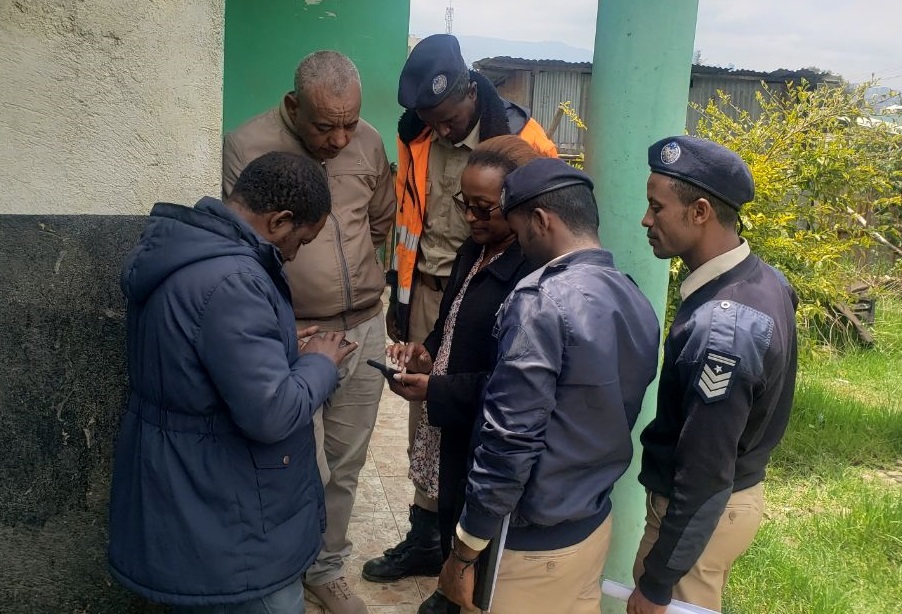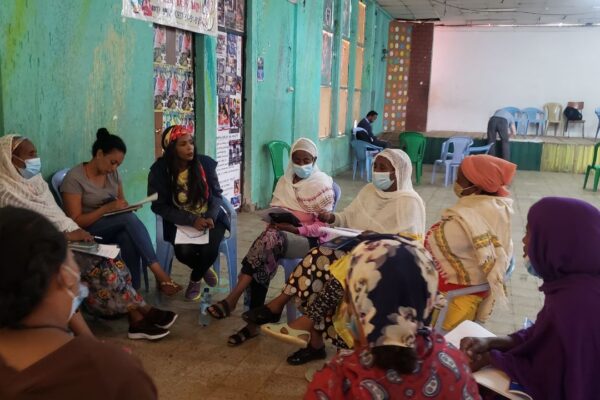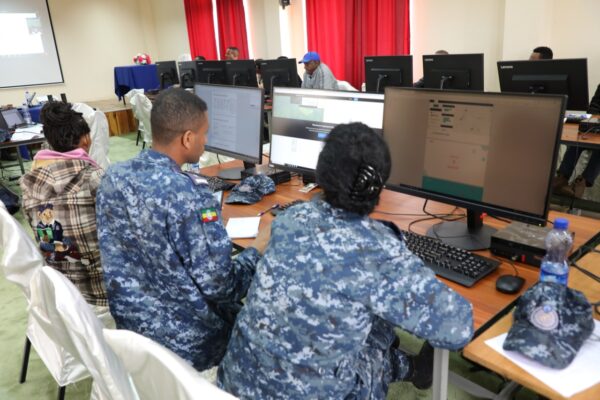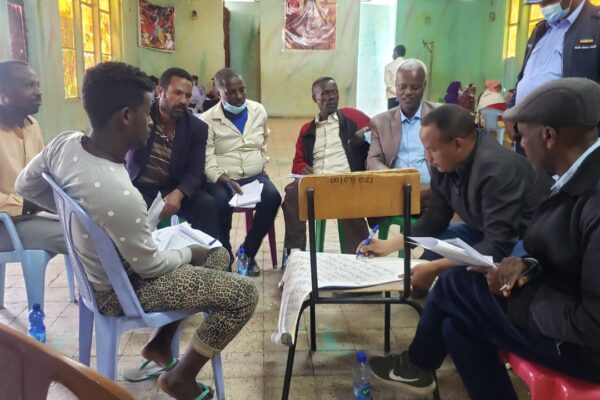Building trust between communities and the police in Ethiopia

Imagine a community that collaborates closely with the police to ensure public security and efficient policing. Now imagine this happening in a society where violent conflicts are common. This is a type of trust building approach between communities and the police currently happening in Ethiopia. The police and the general public collaborate to identify community problems and then devise and implement solutions to those issues. The resolution approach considers home-grown knowledge of the area and the cultural, social, and psychological conditions of the society. Creating a strong relationship based on trust between the police and society is the basis for providing security to people and guaranteeing an effective policing service. This approach in Ethiopia is helping to break away from a reactive style of policing towards a more trusting, proactive and preventive approach.

Ethiopia is a paradoxical country in flux. Since Abiy Ahmed's ascent to power in 2018, Ethiopia has been on a path of significant social, economic, and political transformation. Simultaneously, the country has experienced a devastating civil war that displaced millions, cost countless lives, and caused a significant rift in Ethiopia's federal structure and ethnic fabric.
While the ongoing conflicts in Ethiopia and alleged war crimes have damaged national and international reputations around its reform agenda, there are numerous ongoing government and non-government initiatives to improve community and state relations, address community needs, and reform institutions to deepen democracy, broaden citizen participation, and promote peace. For instance, around the end of 2020, Ethiopia's Ministry of Peace presented a progressive new policing doctrine, pledging the federal and regional police to submit to stronger public oversight, improve respect for diversity and uphold international human rights standards. Interpeace, in partnership with the Ethiopia Police University, is working on a trust building program between citizens and the police to provide a method to make the progressive philosophy captured in the Ethiopia Police Doctrine a reality of on the ground.
In 2021, Ethiopia's Ministry of Peace and Interpeace conducted a baseline review and surveyed a total of 1,786 people from four Woredas (District-level administrative units) to assess the difficulties encountered in interactions between the community and the police. The review revealed that trust has long been the missing link in the police service across the Woredas surveyed. Notably, the youth were skeptical of the police, and there was a lack of consistency in local community police support for public safety programs in neighbourhoods. Little was said about the support provided to women and people with disabilities, leading to the conclusion that the existing platforms to ensure active public engagement were superficial, as community residents had little influence over identifying, prioritizing, and resolving pressing community issues.

To address these issues, this community policing program emphasizes the importance of police and public collaboration in identifying and prioritizing community safety concerns. The police and the community get to choose the highest priority concerns and work together to better understand safety issues. To that end, Geographic Information System (GIS) software is used to electronically map out the locations of community safety events discovered in the Woredas. The software has paved the way for police and the public to visualize and comprehend problems in novel ways. It promotes discussion about the facts displayed on the GIS screen rather than individual perceptions of the issues. For example, people in a Woreda may complain to the police about a rise in street crime, such as muggings. The police input the data from the street crime incident into the GIS mapping programme. They share the maps produced by the GIS programme with the community and together analyze the data to better understand what is causing the increase in incidents and devise a response to prevent the crimes from occurring again. The software can only be used for preventive policing together with communities and not to support any criminal investigations that could compromise the trust in the police.
Matters that are important to the public are not always important to the police, and vice versa. The community GIS allows everyone involved to gain a common understanding, promotes trust and open dialogue, and leads to the implementation of longer-term problem-solving actions.
One of the primary goals of this joint approach between police and citizens is the reduction of insecurity and improvement of safety in a community. Citizens, on the other hand, will only be willing to work with the police if they see an improvement in public safety and security and have trust in the police and other law enforcement agencies. It is worth noting that this police-community trust-building initiative has achieved remarkable results by having community members collaborate with Woreda-level community policing officers to identify and prioritize community safety issue. Ultimately, this project is providing Ethiopian police services with a method that can be instrumental in transforming the Ethiopian Police Doctrine from a philosophy into a reality on the ground. This can have far reaching consequences in terms of improving community safety across the country and establishing strong foundations of trust between Ethiopian citizens and police services.

